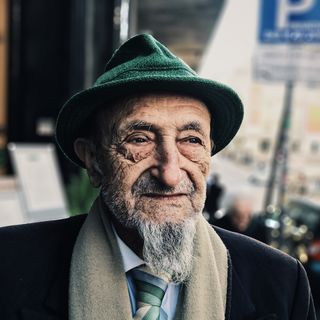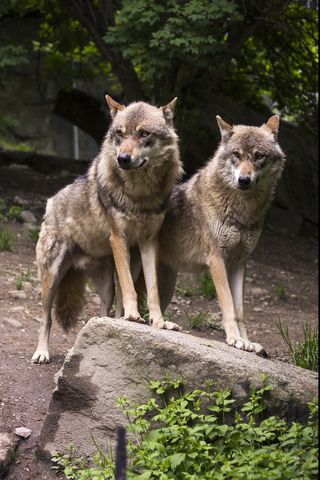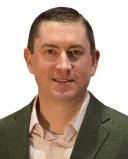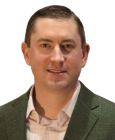Neuroscience
The Vice and the Virtue of Becoming What We Do
"Nothing we ever do is, in strict scientific literalness, wiped out."
Posted June 17, 2019

In his 1949 book Organization of Behavior, neuropsychologist Donald Hebb described how pathways in the brain are formed and reinforced through repetition. The more we do a particular action, feel a particular feeling, or think a particular thought, the stronger that neural network becomes, making the process more efficient over time.
A critical mass of neuroscientific research has essentially reinforced the basic premises of Hebbian theory, and the notion—so well articulated by Carla Shatz—"neurons that fire together, wire together," has become a modern mantra.
We have always assumed, as a function of conditioning, that experience shapes changes in the brain's structure. What we must better understand is how, consequently, the behavioral processes involved in linking together neurons through synapse formation and modulation is, then, the very basis of memory and learning. Significant aspects of our existence result.
Yet, to be clear, it is not possible for us to logically unravel the complex sequences and feedback loops that constitute rigid and reactive cycles in our lives and relationships. We each face our own difficult battles, which is not an excuse but certainly a fair casting, and our emotions, feelings, thoughts, and perceptions are nearly inextricably linked.
Our lives are teeming with feedback loops with one thought, feeling, or action promoting another and secondary phenomena subsequently reinforcing the first. Stampedes are generated when psychological panic triggers physiological startle and when the physiological startle in one promotes panic in another, and so on.
The dynamic of mutual reinforcement is common in the lives of human beings as well. There is a positive social feedback loop between beliefs and behavior—if enough people believe that something is true, their behavior can make it true, and observations of their behavior may, in turn, increase belief. A classic example is a bank run. You may be more familiar with the phrase “self-fulfilling prophecy.”
The pioneering psychologist and philosopher William James (1892) put it this way:
Could the young but realize how soon they will become mere walking bundles of habits, they would give more heed to their conduct… Every smallest stroke of virtue or of vice leaves its never so little scar. Down among the nerve cells and fibers the molecules are…registering and storing it up to be used against him when the next temptation comes. Nothing we ever do is, in strict scientific literalness, wiped out. Of course this has its good side as well as its bad one.
“Its good side as well as its bad one" [italics mine]. Could there be a causal link between virtuous action now and virtuous action later? What if psychological growth, like market investment, appreciated with compounding interest—muster a small amount of courage or vulnerability, extend yourself generously for the sake of someone in need, and love, peace, patience, kindness, self-control and the rest would be more quickly forthcoming? Hebbian theory meets positive psychology?

As a lay theologian, British academician C.S. Lewis (1952) contended, "Good and evil increase at compound interest. The decisions you and I make every day are of infinite importance."
Certainly our acts shape us not merely to the degree we choose them. And so, our capacity to choose changes with the activity of life. An ancient proverb instructs, “Train up a child in the way they should go, and when they are old they will not depart from it.”
The more we fear oblivion, the more we chase ambition, regardless of the prizes we gain, deep anxieties propel our actions and our actions, our anxieties. Our heart hardens.
Conversely, the more we embody acts of courage and bear others’ burdens, the more our heart is enlivened. Each act which feeds integrity also increases capacity for virtue.
Eventually it becomes more difficult for me to choose the foul rather than the virtuous action. On the other hand, each act of cowardice weakens me. Between the extreme when I can no longer do a wrong act and the extreme when I have lost all strength for right action, there are innumerable degrees.
Vice sows compulsion, and virtue sows freedom. If the degree of freedom to choose the good is great, it needs less effort to choose the good. If it is small, it takes a great effort, help from others, and favorable circumstances.
Erich Fromm (1964) wrote:
We find ourselves on the wrong path not just because when the road diverged in the wood, we took the wrong one, but because at every juncture, it either becomes more wooded or more well lit, more difficult or more easy to discern which path might, in fact, be the better one.
Our fears have ways of bracing us in anticipation, and anticipation has ways of fulfilling itself. Faith, hope, and love are more audacious yet no less fruitful. In considering the power of psychological impulse, psychologist David Shapiro (1981) contended:
In adult human beings, even strong impulses account only for strong temptations; they do not in themselves account for actions. Action involves more complicated processes. Human beings are endowed with imagination, and imaginative consciousness, and thus cannot act, even if they want to, without a certain degree of conscious anticipation and intention.
Ultimately, the science of neuroplasticity tells us that we have a significant degree of capacity to form new brain pathways throughout our lives. This also includes stimulating the growth of new neurons, the laying down of myelin for skill-formation, and the shaping of the epigenetic control molecules that influence future gene expression and the subsequent growth of neural structure.
Believe me: that's all very good and encouraging news.

Cherokee legend tells of a boy who came to his grandfather angry at a friend who had committed an injustice against him. The boy expressed desire to act in kind, and the grandfather listened well, and knowingly. When the boy was silent, the grandfather reflected on his grandson’s dilemma:
"It is a terrible fight between two wolves. One is evil—he is anger, envy, sorrow, regret, greed, arrogance, self-pity, guilt, resentment, inferiority, lies, false pride, superiority, and ego. The other is good—he is joy, peace, love, hope, serenity, humility, kindness, empathy, generosity, truth, compassion, and faith. The same fight is going on inside you and inside every other person too.”
The grandson considered these words and then asked, “Which wolf will win?” The old Cherokee responded, “The one you feed."
References
Hebb, D. O. (1949). The organization of behavior. New York: Wiley & Sons.
James, W. (1892). Psychology: The briefer course. London: Macmillan and Co.
Lewis, C. S. (1952). Mere Christianity. London: Geoffrey Bles.
Shapiro, D. (1981). Autonomy and rigid character. New York: Basic Books.
Fromm, E. (1964). The heart of Man, its genius for good and evil. New York: Harper & Row.




